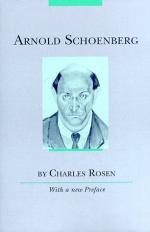|
This section contains 11,127 words (approx. 38 pages at 300 words per page) |

|
SOURCE: "The Caesura of Religion," in Opera Through Other Eyes, edited by David J. Levin, Stanford University Press, 1994, pp. 45-77.
In the following essay, Lacoue-Labarthe discusses the religious undercurrents in Schoenberg's work.
No doubt, it is not impossible to say that Wagner fundamentally saturated opera. A proof of this, which is nonetheless indirect, is that everything which followed without exempting itself from the exorbitant ambition he had imposed upon the form carries the stigmata of the end. This may be in the nostalgic and relatively comfortable mode to which the late Strauss resigned himself, a mode that in short ended his career with an adieu, more disenchanted than really melancholic, to the two genres in which, as he well recognized, a limit had been reached (this is why the so-called Four Last Songs, if only because they return to the "law of genre," that is, to a preMahlerian...
|
This section contains 11,127 words (approx. 38 pages at 300 words per page) |

|


